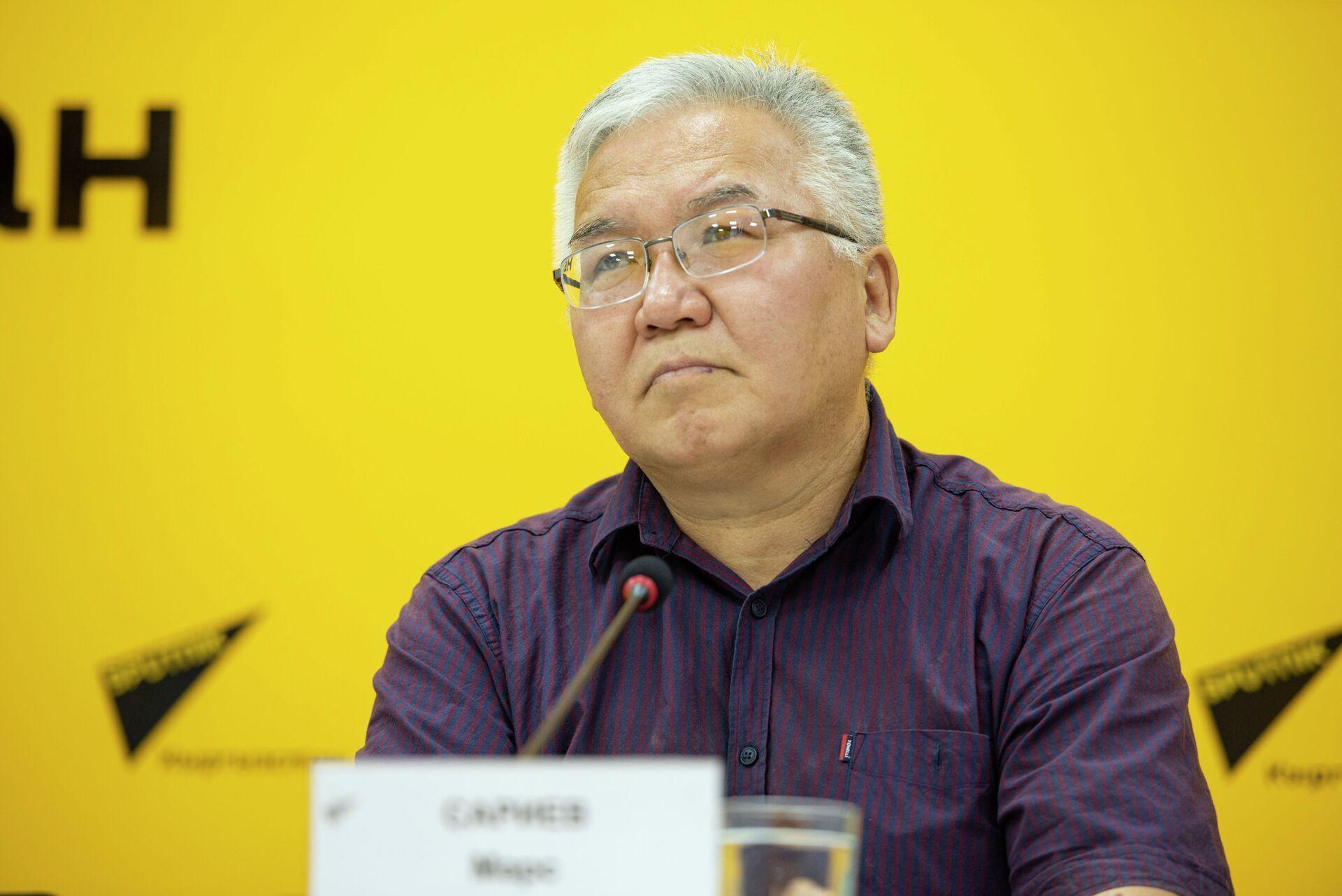Central Asia’s shift to Western projects spurs tensions with Russia, China Investment boosts opportunities for the region
The US and the EU have been recently intensively working to edge out Russia and China from Central Asia, according to Russian Izvestia newspaper.
Acting Special Coordinator for the US Partnership for Global Infrastructure and Investment Helaina Matza has recently visited the region and announced that the G7 countries are prepared to invest up to $200 billion in infrastructure development projects there. Washington is also ready to allocate the same amount, up to $200 billion, for creating new jobs in Central Asian countries.
"We are engaged in a crucial struggle in South and Central Asia. This is a fight to compete with China, counter misinformation from Russia and China, and prevent terrorist activities," stated Donald Lu, the US Assistant Secretary of State for South and Central Asian Affairs.
He said that Central Asia has become a particularly significant arena for "US competition with China and Russia." Kazakhstan as an example, emphasizing that "financial support for local media" from Washington will help create "fact-based content" and "reduce the level of interference from Russia and other countries." Specifically, Donald Lu noted that the aid will be aimed at creating an "alternative to Russian media."
Moreover, during hearings at the House Foreign Affairs Committee, he stated that a programme has been developed for migrant workers deported from Russia. The goal of this programme is to create jobs in Central Asian countries so that returning citizens will be in demand in their home countries.
Lu noted that the Biden administration has requested $220.7 million from Congress for Central Asian countries, specifically to counter the growing influence of Russia and China. Matza visited Uzbekistan and Kazakhstan, where she met with local officials and private sector partners to discuss potential infrastructure projects and their funding.
The projects focus on such areas as the extraction and processing of rare earth metals, transportation and logistics, agricultural production, and clean energy. The US and the EU have recently shown great interest in the Trans-Caspian International Transport Corridor (the Middle Corridor), which links container rail freight networks from China to EU countries via Central Asia, the Caucasus, Türkiye, and Eastern Europe.
The G7 countries have recently agreed to invest $600 billion in developing nations by 2027, with one-third of this amount allocated to Central Asia. If the US increases its investments in the region, the transit and infrastructure interactions between these countries and Russia will be significantly reduced. Consequently, Moscow risks losing a substantial volume of cargo transportation and other forms of cooperation.
At the same time, the development of infrastructure in Uzbekistan and Kazakhstan will benefit China by creating new opportunities to advance its Belt and Road Initiative, which is also advantageous for the South Caucasus.
Thus, the competition between Russia and the West for economic influence in Central Asia and the South Caucasus is intensifying. It is clear that Western countries have realized that the threat of secondary sanctions has limited impact, prompting them to shift their approach and seek to distance the regional countries as much as possible from China and Russia.
The US and the EU are offering an alternative to the existing cooperation among Central Asian countries, Russia and China. However, the specifics of how cooperation with the US will be implemented remain unclear. It is possible that a condition for receiving the announced funds could be a requirement from the Western countries to reduce or abandon close collaboration with Russia and China.
Currently, Central Asian countries are focused on infrastructure projects such as the Trans-Afghan Railway, the TAPI gas pipeline for Turkmenistan, and the railway from China to Uzbekistan through Kyrgyzstan. Most of these projects do not align with Washington's interests.
It is intriguing to consider the potential consequences of the competition for Central Asia between the West and Russia, China. How does this rivalry align with the fact that both China and Europe are interested in advancing the Middle Corridor project to facilitate increased trade between them?
Foreign experts shared their views on this topic with Caliber.Az.

Russian sociologist and political analyst Vladislav Inozemtsev, head of the Center for Post-Industrial Society Studies, noted that these are very important questions.
"I have worked on this topic and gave a substantial presentation in France last year on Central Asia and the influence of Americans, Europeans, and Chinese there. These plans look promising, but, generally speaking, most Western initiatives regarding post-Soviet states in recent years have not succeeded," he said.
"This is mainly because, after the impressive announcements of cooperation programmes, the actual concrete steps have been quite ineffective. In practice, substantial investments have rarely been fully allocated or used. The issue is that there is a prevailing belief in Europe that Central Asia, being situated between Russia and China, two centers of power, should naturally gravitate towards the West," he noted.
He reported that Kazakhstan has been recently sending more than half of its exports to the European Union.
"The West has become complacent because it fails to understand that these strategically crucial countries need to be actively competed for against both Russia and China. Therefore, I approach such statements with a degree of skepticism. I do not believe they will yield significant results," the political analyst said.
"It seems to me that unless China strains itself with such investment projects in the region, or unless a conflict arises between Russia and China over their presence there, the West, with its current approach, will be unable to play a strategically important role in the region for the time being," he said.
“This includes promises, such as France's intention to establish enrichment plants in Kazakhstan, which have not been realized. The Central Asian armies are still equipped with Soviet and Russian weapons. In this case, the effort to shift alignment towards the West is progressing very slowly.
"Such initiatives tend to arise only when the situation becomes critical, and it becomes clear that China is winning in the region. Therefore, I believe this is just another wave of discussions. I cannot say that it will quickly subside—some results may be achieved. However, a significant shift is unlikely to occur," he added.
“I wonder that there is a strong affinity for the West in the entire region, and particularly in Kazakhstan [to a lesser extent in Uzbekistan]. They genuinely see Western countries as important players alongside Russia and the rising China, and thus Western attention is very significant for them. However, I must reiterate that, it is still insufficient," Inozemtsev stressed.

Kyrgyz political analyst, regional security expert, and former diplomat Mars Sariev stated that the competition between the West and Russia, China for Central Asia is intensifying.
"The United States and the European Union are offering very attractive projects to support Central Asia, amounting to $200 billion. This primarily includes the Trans-Caspian Corridor. I believe that the China-Kyrgyzstan-Uzbekistan railway will also receive support within this framework. Therefore, these are very promising and beneficial proposals for Central Asian countries," the expert said.
"Of course, this creates tension in relations between Central Asian countries and Russia," he says. "However, I don't think China will particularly oppose these projects because they align with Beijing's interests. The Middle Corridor from China through Kyrgyzstan and Uzbekistan to Europe suits China well. Therefore, there will be no significant opposition from China, as it benefits it."
"Russia is aware that Central Asia is effectively coming under the Western patronage, and Moscow is displeased with such a situation. We have recently High Representative of the European Union for Foreign Affairs and Security Policy Josep Borrell’s visit to Central Asian countries, and the EU–Central Asia leaders' summit is set to take place soon," he noted.
"Overall, very important issues will be discussed behind closed doors. There is also a planned C5+1 summit, which will include Central Asia and Japan. Economic projects that are highly advantageous for Central Asian countries will also be on the agenda," he stressed.
"Therefore, I believe that in this complex situation, Central Asian countries will collectively embrace these Western proposals and funding projects. This is a substantial amount for them, and it will help them develop infrastructure and access global markets," the former diplomat added.








